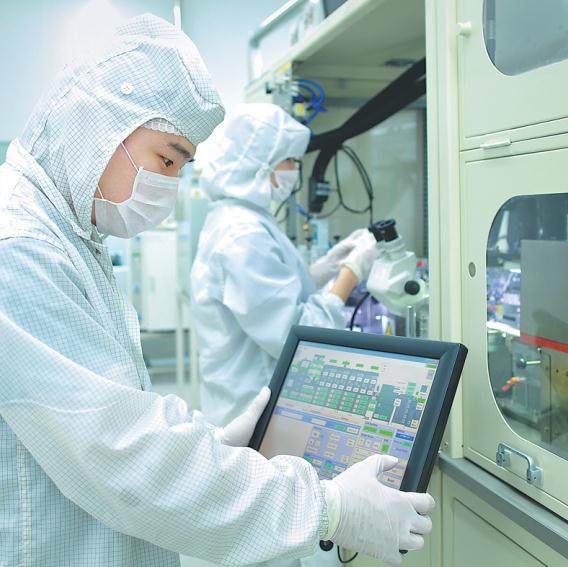Chinese researchers create core material for homegrown chips
- By Wu Jin
 0 Comment(s)
0 Comment(s) Print
Print E-mail China.org.cn, May 9, 2018
E-mail China.org.cn, May 9, 2018

Chinese researchers have mastered the technology to create a phenolic resin for photoresist formulations, a material crucial to chip production, and have made it available in the previously monopolized market , the Science and Technology Daily reports.
Tang Yilin, president of Jinan Shengquan Group, the parent company of Asia's largest phenolic resin producing base, said it took his research and development team 26 years to come up with the new material, which is expected to greatly boost domestic chip production.
The producer is now receiving orders from photoresist manufacturers and suppliers.
Li Zhifang, director of the Shengquan Research Institute of Phenolic Resins and a participant in development of the high-end material, said, "We never expected the market of resins for electronic materials, which are mostly used in printed circuit boards (PCBs), could be so substantial."
"However, as the ZTE issue caused widespread concern over China's heavy reliance on chip imports, people called for promotion of home-made chips and we felt it imperative to produce our own high-end synthesized resins for the electronics field," said Li.
As early as 1992, Tang Yilin founded a research group in the hope that they could make their own phenolic resins. However, owing to outdated equipment and insufficient technological support, their first several attempts failed. It was not until 1997, when the group teamed up with Hepworth Mineral and Chemical Co. Ltd. of the U.K., that the cutting-edge technology was introduced.
However, Tang has never forgotten the importance of independent research and development.
"Without a core technology in hand, the company's development will be at the mercy of others, and one could never expect to attain the technology by appealing to others' sympathies," said Tang.
Tang stressed, "We should rely on our own efforts."
Apart from introducing advanced international technologies, the company has exerted great efforts in talent grooming and technological capability building, and established intensive cooperation ties with many research institutes and universities at home. In 2007, the company and the Institute of Chemistry of the Chinese Academy of Sciences jointly established the Research Center of Phenolic Resin Technology and undertook a number of projects, including development of ablation-resistant materials for rockets.
The materials developed by the company have been widely used in building of high-speed railways, maglev trains and the Shenzhou spacecraft series.
China does not lack either technological potential or relevant materials for development of chips. Enterprises on the industrial chain should strengthen solidarity and perseverance so as to go further in technological innovation , Tang said.






Go to Forum >>0 Comment(s)